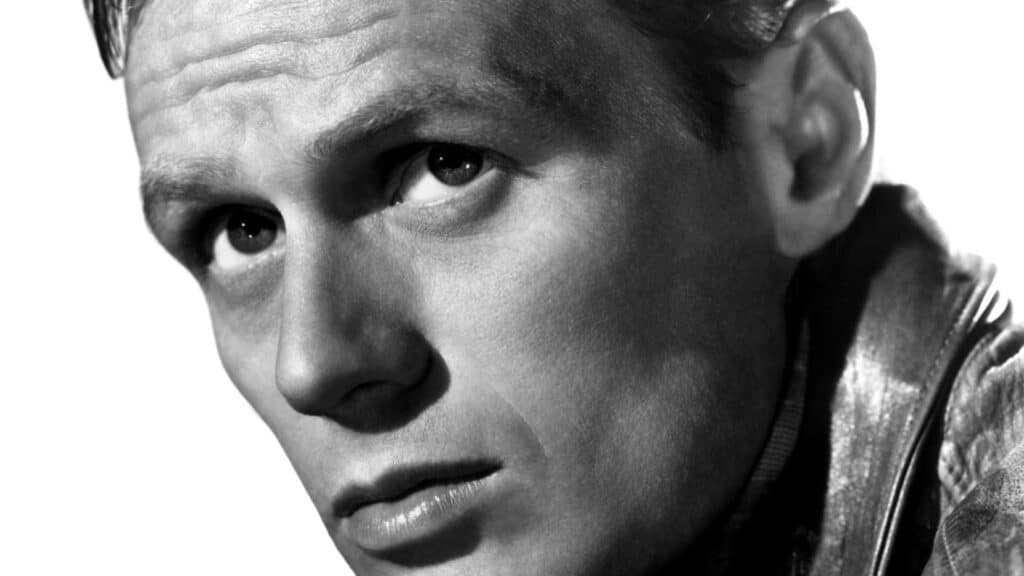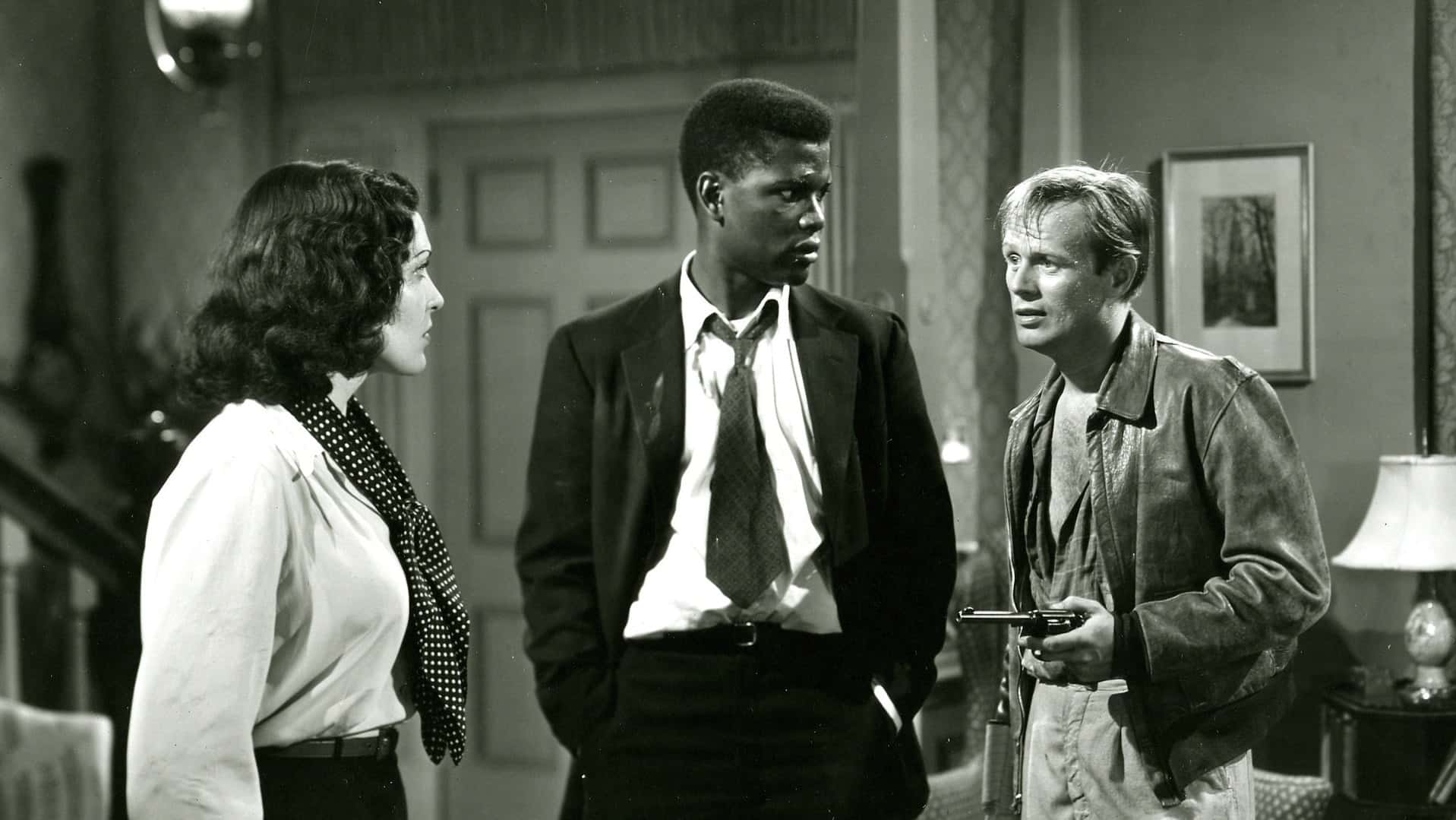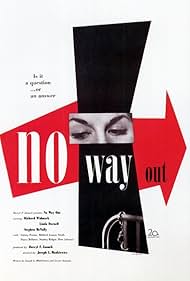Issue-driven but dramatic enough and making political points that still resonate, No Way Out is a film about racism and stars Sidney Poitier in his first major role. He’s 22 and his self-assurance is both remarkable and one of the key selling points of director Joseph L Mankiewicz’s film.
Poitier plays Dr Luther Brooks, a black doctor in a very white hospital where – as Mankiewicz and co-writers Lesser Samuels and Philip Yordan’s go to great pains to show – Brooks is treated as an absolute equal by his fellow doctors. In particular Dr Dan Wharton (Stephen McNally) and hospital administrator Dr Sam Moreland (Stanley Ridges).
Don’t be fooled, black lift operator and voice of the streets Lefty (Dots Johnson) tells Brooks as he’s heading to attend to two hoodlum brothers injured in a shootout, to the white folk you’ll always be a Negro first. Lefty might not have used the word Negro – trigger warning, this film is full of racist language.
Most of it comes out of the mouth of Ray (Richard Widmark), one of the injured brothers, who is spitting racist slurs at the good doctor from the instant they meet. They’re supercharged once Ray’s brother Johnny (Dick Paxton) dies. Ray is convinced that the black doctor deliberately killed his white patient. Brooks, on the other hand, is fairly certain the wounded man was also suffering from a brain tumour, and wants to prove it by having an autopsy performed, which Ray refuses to permit.
To get around this problem, and to clear his name, Dr Brooks seeks out the dead man’s ex wife, reasoning (god knows why) that she can give the permission that Ray is withholding, only to find that she’s a racist too and not in the mood to help out.
En route, a little cutaway to a meeting between Drs Wharton and Moreland, in which they hash out Brooks’s presence at the hospital, discuss what would now be called the “diversity hire” and mull over the possibility or impossibility of genuinely colour-blind employment practices at the hospital.
Then back to the threeway between Luther, the ex-wife, Edie, and Ray. Linda Darnell plays Edie, and is very good at it, her usual flat delivery repurposed to present a portrait of a disappointed woman whose racism stems from ignorance more than anything else. Darnell’s character is the only real person in this movie; the others are placeholders for political positions. The two white liberal doctors who come at race from different angles (one sees the colour, the other says he does not). The two black men Lefty and Dr Brooks, the former we might anachronistically call a revolutionary Malcolm X type, the latter an evolutionary Martin Luther King. Only Edie changes, only Edie is real.

If Edie is the ignorant racist, at first anyway, Ray is the pathological version. His racism is a sickness that cannot be cured, and in speeches that resonate even now, his sense of white grievance is aired – spare a thought for poor white old me and my tough time on the wrong side of the tracks etc.
Two sub-plots sit uneasily. One concerns a race riot provoked by the death of Johnny. The other ropes in Ray and Johnny’s deaf brother, George, who flaps around largely uselessly but is played with some flair by Harry Bellaver, as if the character had some meaning and purpose.
It’s a nicely written drama, terse, unafraid to get ugly, and with a pervasive sense of seediness. Poitier’s role is a touch saintly, though in scenes set in the Brooks family home there is an attempt to round out his character – the pretty wife (Mildred Joan Smith), the bumptious brother (Ossie Davis, his first screen role), the homely sister and mother.
Which brings us to Widmark’s Ray, a wild-eyed character composed entirely of defects, which Widmark does his best with, though there isn’t much to play with apart from Ray’s blind fury. Widmark was friends with Poitier and was very uneasy about the language he had to hurl in his direction.
The National Legion of Decency, a self-appointed moral guardian in the USA, rated the film as B (“morally objectionable in part”). Not quite sure what they were so exercised about, but then moral guardians often confuse the messenger and the message. The NLD also gave All Quiet on the Western Front, one of the great anti-war movies, a B rating. And, remarkably, the gentle Ealing comedy Kind Hearts and Coronets, presumably because there was a lot of murder in it. But then there’s also a lot of murder in the Bible and that’s presumably OK?
No Way Out – Watch it/buy it at Amazon
I am an Amazon affiliate
© Steve Morrissey 2025

